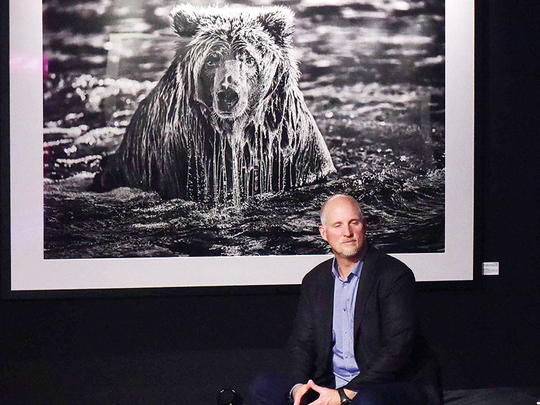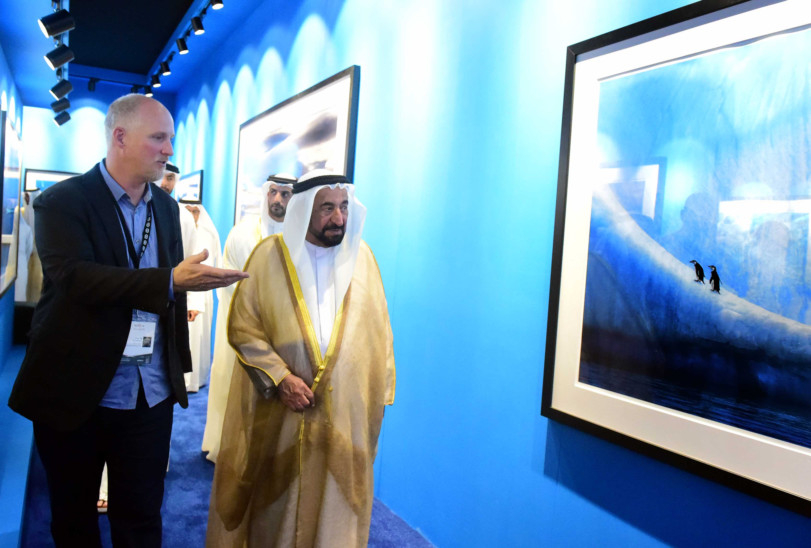
Sharjah: “This is the only home we have and we need to take good care of it,” said Paul Nicklen, one of the world’s leading marine biologists and a photographer specialising in the polar region, following the opening of Xposure 2017 in Sharjah on Wednesday.
Nicklen, who gave a keynote address on ‘Polar Obsession’ during the opening session of the Xposure 2017, spoke to Gulf News on the sidelines of the photography exhibition that features his work, sharing intimate moments with wildlife in the polar region that very few people have access to.
“We only have this planet to live in. I don’t think we are going to move to Mars and I certainly don’t want to move to Mars even if life is found there. This is our planet and we need to protect it,” he said.
He added that over half of the ice in the polar region has diminished in the last 20 years, warning that if right steps are not taken, the remaining ice will also be gone in the next two decades.
“When we say that the ice will be completely gone in 20 years, we mean that not just the ice will be gone but the entire ecosystem will collapse. When people hear that the sea ice is disappearing, we think that the ice is just ice. But when you dive below it and you see that the ice is very much like an inverted garden, with 300 species and microorganisms living underneath like the shrimp, krill, narwhals, Beluga Whales etc. These species and a lot of other animals and elements are tied to the ice,” said Nicklen, who has spent 20 years documenting the changes taking place in the Arctic and Antarctica.
Nicklen has set up a non-profit organisation called Sea Legacy that works on protecting the oceans around the world.
“What formed through the evolutionary process of over four billion years is seeing such a massive impact in just a few decades, which speaks a lot about the drastic impact our attitudes have had on the nature,” added Nicklen, who grew up in Greenland and saw the devastation of climate change from close quarters.
Solution
He added that the only thing needs to be done to change our carbon footprint is to control our consumption.
“This is what is exciting about Sharjah and the UAE as they are looking for cleaner energy solutions. Despite the fact that the country is a big oil producer, they are looking at solar and clean energy, which is the way forward. We have scientists and engineers who are finding better ways in producing cleaner energy,” he added, hailing the steps being taken by the UAE authorities in improving the environment.
Though he is not happy about what the world leaders are doing to offset the impact of climate change, he said people have to realise their power to make a difference.
“I don’t think enough is being done by the world leaders when it comes to reversing the impact of climate change. Attitudes need to change, we need to shame the biggest emitters of carbon emission like the US and Canada and make people care about the nature around them.”
Though every region is impacted by climate change, he said there is still hope and the impacts are reversible.
“Ultimately, with a little more care, the trend is reversible. If we can slow down carbon emission, we can still save whatever is left of this world and, believe me, there is a lot.”
Scientists are pointing at bigger durations of droughts, stronger hurricanes and increasing levels of water and salinity in the sea as some of the immediate impacts of climate change.












